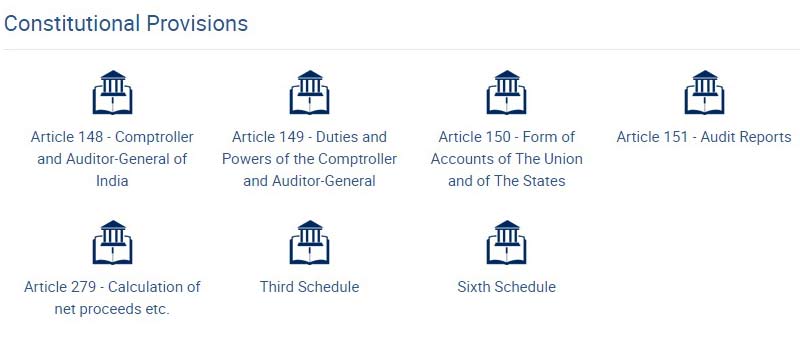- India
- Aug 08
Girish Chandra Murmu takes charge as CAG
Girish Chandra Murmu assumed charge as the new Comptroller and Auditor General (CAG) of India on August 8. He succeeds Rajiv Mehrishi, who demitted office on August 7. Murmu was administered the oath of office and secrecy by President Ram Nath Kovind at Rashtrapati Bhavan. He will have a tenure up to November 20, 2024.
Who is G.C. Murmu?
Murmu, a 1985-batch IAS officer (retired) of Gujarat cadre, was the first Lt Governor of Jammu & Kashmir Union Territory.
Before moving to J&K, he served as joint secretary in the Department of Expenditure, additional secretary in the Department of Financial Services and Department of Revenue and then special secretary before serving as full-fledged secretary of the Department of Expenditure.
Before his tenure at the Centre, Murmu served on important assignments in Gujarat. He has wide experience in administrative, economic and infrastructure fields. Murmu holds an MBA degree from the University of Birmingham.
What is the role of CAG?
• CAG is the guardian or caretaker of the national purse.
• The CAG’s duty is to uphold the Constitution of India and the laws of Parliament in the field of financial administration.
• The accountability of the Executive (council of ministers) to the Parliament in the sphere of financial administration is secured through audit reports of the CAG.
• Conducts audit of expenditure on behalf of the Parliament. Therefore, is responsible only to the Parliament.
• Considered as an important pillar of the Constitution.
• The primary purpose of audit is to ensure that the money has been applied to the purpose or purposes for which the grants made by the Parliament were intended to provide and that the expenditure conforms to the authority which governs it.
• CAG enjoys the same status as that of a judge of the Supreme Court of India.
Constitutional provisions for CAG
CAG is an authority, established by the Constitution of India under Chapter V.
Articles 148, 149, 150 and 151 of the Constitution describe the functions and powers of CAG.
The CAG is appointed by the President.
Although the history of the audit department is almost 160 years old, it was the Constitution of India which proved catalytic in transforming this organisation as an independent pillar of Indian democracy.
How independence of CAG is ensured?
During the deliberations of the Drafting Committee of the Constitution, Dr. B.R. Ambedkar felt that the Comptroller and Auditor General shall be the most important officer under the Constitution. CAG cannot function in an independent manner unless he enjoys certain constitutional protection and privileges. To ensure his independence, following provisions are there in the Constitution.
• He is provided with the security of tenure. He can be removed by the President only in accordance with the procedure mentioned in the Constitution. Thus, he does not hold his office during the pleasure of the President, though he is appointed by him.
• He can be removed by the President on the basis of a resolution passed to that effect by both the Houses of Parliament with special majority, either on the ground of proved misbehaviour or incapacity. He can also resign anytime from his office.
• He is not eligible for further office, either under the government of India or of any state, after he ceases to hold his office.
• His salary and other service conditions are determined by the Parliament. His salary is equal to that of a judge of the Supreme Court.
• Neither his salary nor his rights in respect of leave of absence, pension or age of retirement can be altered to his disadvantage after his appointment.
• The conditions of service of persons serving in the Indian Audit and Accounts Department and the administrative powers of the CAG are prescribed by the President after consultation with the CAG.
• The administrative expenses of the office of the CAG, including all salaries, allowances and pensions of persons serving in that office are charged upon the Consolidated Fund of India. Thus, they are not subject to the vote of Parliament.
• Further, no minister can represent the CAG in Parliament (both Houses) and no minister can be called upon to take any responsibility for any actions done by him.
What are the duties of the CAG?
As envisaged in Article 149 of the Constitution, the Parliament enacted a detailed legislation called the CAG’s Duties, Powers and Conditions Act in 1971 which describes his mandate and puts almost every spending, revenue collecting or aid/grant receiving unit of the government (the Centre and the states) under his audit domain.
The duties are to audit and report upon:
• All receipts into and spending from the coffers (called the Consolidated Fund) of the Union and state governments.
• All transactions relating to the emergency expenses (called Contingency Fund) and relating to the monies of the public held by the government. For example, Postal savings, Vikas Patras (called Public Accounts) at Central as well as state levels.
• All trading, manufacturing, profit and loss accounts, balance sheets and other subsidiary accounts kept in any government department.
• All stores and stock accounts of all government offices and departments.
• Accounts of all government companies and corporations. For example, ONGC, SAIL, etc.
• Accounts of all autonomous bodies and authorities receiving government money. For example, municipal bodies, IIMs, IITs, state health societies.
• Accounts of any body or authority on request of the President/Governor or on his own initiative.
• The Act also provides for compilation of accounts of the state governments from the subsidiary accounts maintained by the state governments.
Organisation structure of CAG
• CAG heads the Indian Audit and Accounts Department.
• Currently, CAG is assisted by five deputy CAGs, one among them is also the Chairman of the Audit Board.
• There are four additional deputy CAGs.
• There are Accountant Generals in states who act as the agents of the CAG.


